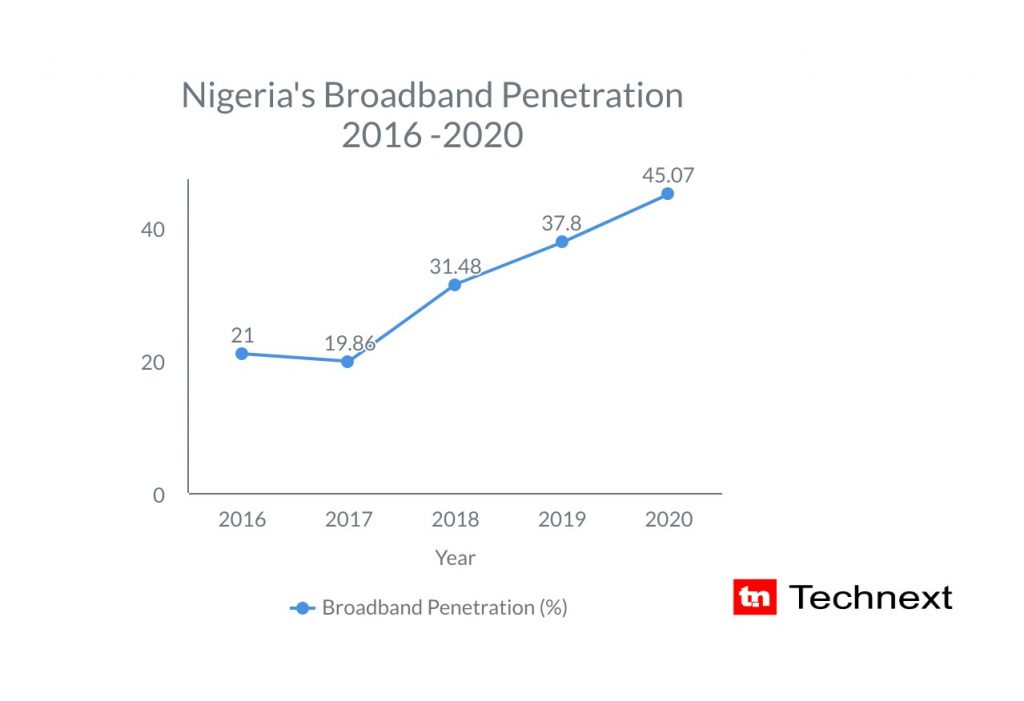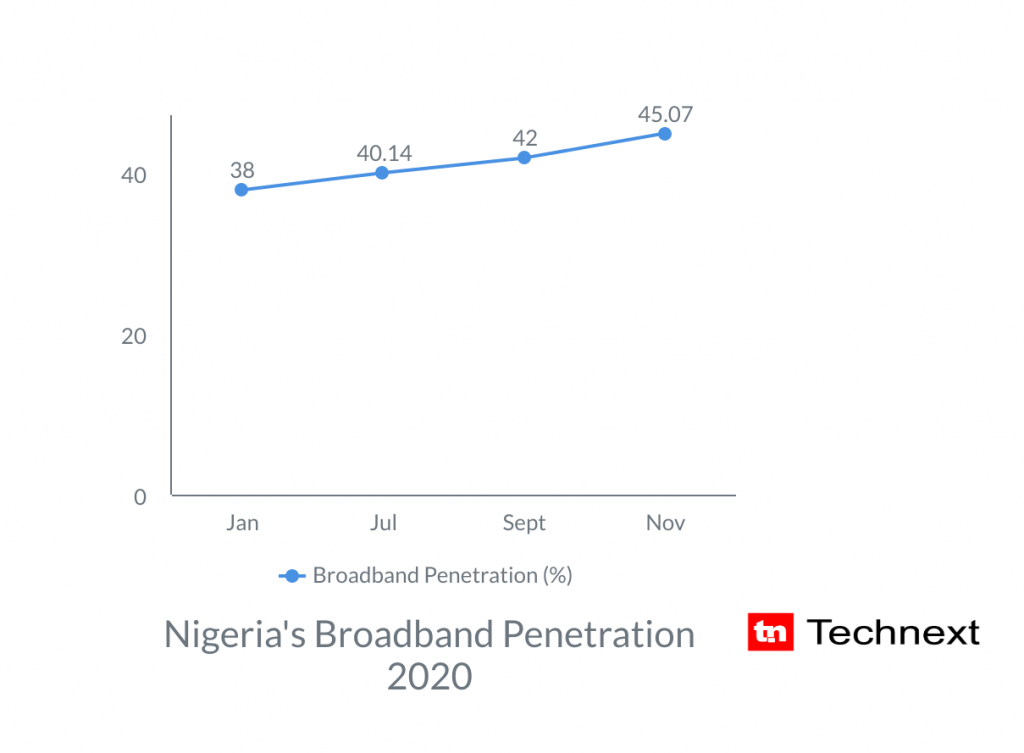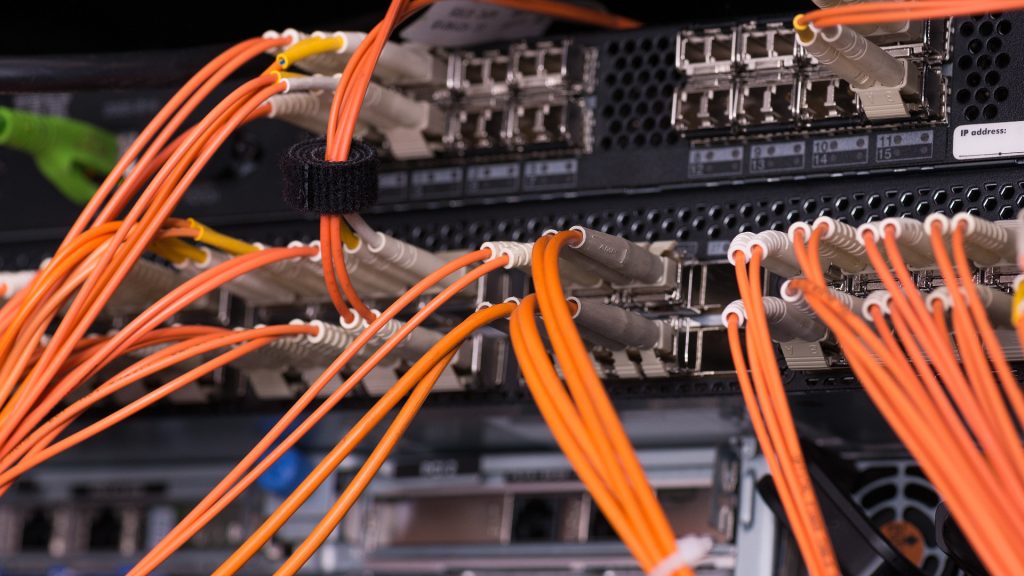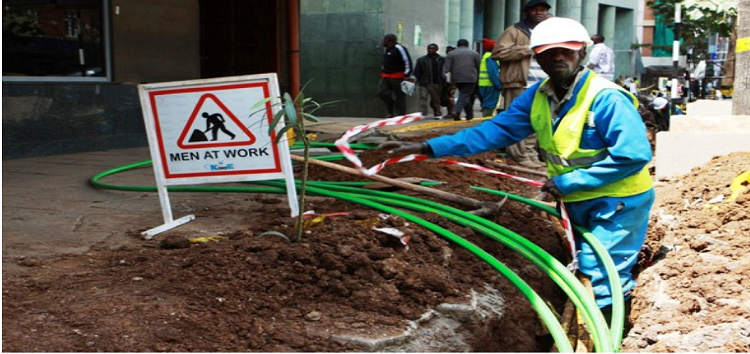Broadband penetration in Nigeria reached 45.07% in November 2020, with 208 million active telephony subscriptions while active internet subscriptions hit 154.9 million. This is according to Prof Umar Danbatta, the Executive Vice Chairman of the Nigerian Communications Commission (NCC).
Danbatta made the disclosure at a briefing on the functions and regulatory activities of the commission for the new Permanent Secretary of the Federal Ministry of Communications and Digital Economy (FMoCDE), Engr. Festus Yusuf Daudu.
In the last five years, 3G and 4G base transceiver stations (BTS) in Nigeria have increased by 78% from 30,000 to 53,460 while 14,725km fibre optic transmission cables have been added to the pre-existing 47,000km, according to Danbatta.


The NCC Vice Chairman noted that the growth in broadband penetration has been driven by an increase in the number of 3G and 4G telecom towers and the expansion of fibre optic cables to reach underserved areas across the country.
“The BTS, fibre optic cables and other related infrastructure are central to the provision of improved service experience for Nigerians by their respective telecoms service providers,” he said.
Danbatta added that the licensed Infrastructure Companies (InfraCos) are expected to add 38,296km of fibre optic cables when they fully commence operations.
With broadband penetration still at 45.07%, will Nigeria achieve its 2024 target of 65% in line with the National Broadband Plan? The signs are promising.
Broadband Penetration Grew by 24% in Last 4 Years
Between the end of 2016 and 2020, Nigeria recorded a significant 24% rise in broadband penetration from 21% to 45.07%. In other words, the broadband penetration achieved in 2020 was more than double (200%) that of 2016.


Despite a drop-off in high-speed internet penetration to 19.86% in 2017, broadband coverage grew to 31.48% a year later and reached 37.8% in 2019.
Suggested read: Global Broadband Usage Grew by 38% in 2020 but Internet Subscriptions Declined, Here’s Why
In 2020 alone, broadband penetration increased by 7%, from 38% in January to 45.07% in November.


Going by the increase in the last 4 years, it is indeed very likely that Nigeria attains a broadband penetration of 65% or even more by 2024. If broadband penetration grew by 24% between 2016 and 2020, then it could rise by another 24% between 2020 and 2024 to reach 69% – 4% more than the National Broadband Plan target.
InfraCos’ Project Success Key to Expanding Broadband
The successful implementation of the NCC’s national fibre project by licensed Infrastructure Companies (InfraCos) is crucial to ensuring that the 2024 penetration target of 65% is achieved.


Since 2015, a total of six InfraCos have been licensed by the commission to roll out bulk broadband infrastructure in different regions across the country. The licensed InfraCos are MainOne (Lagos), Zinox Technology Limited (South-East), Fleek Networks Limited (North-West), Brinks Integrated Solutions Limited (North-East), O’dua InfraCo Resources Limited (South-West) and Reana Consortium Limited (South-South).
With N279 billion ($732 million) approved by the NCC to deploy an additional 30,000 km of fibre cables over the next four years and a proposed N65 billion broadband stimulus for InfraCos, penetration levels could easily hit 65% by 2024.
However, inherent broadband challenges including exorbitant Right of Way (RoW) charges from state governments, power outages, vandalism and theft may yet slow down the plan to boost broadband coverage in Nigeria.


If these existential problems are not resolved, especially the RoW issue which has long been faced by telecom operators, then InfraCos would not be able to execute fibre-laying activities in the scope necessary to drive significant broadband expansion post-COVID-19.
According to the NCC, every 10% increase in broadband penetration in developing countries results in a commensurable increase of 1.3 % in Gross Domestic Product. Hence, it is imperative that Nigeria strives to achieve its 2024 broadband penetration target to boost the recession-plagued economy.






